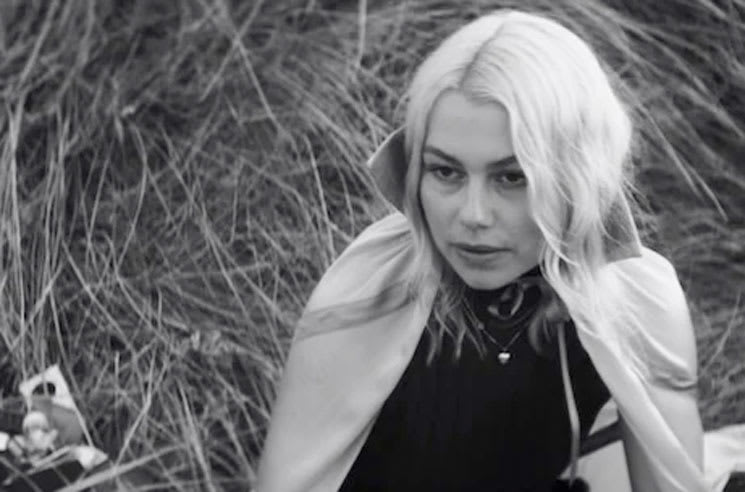Last year, Phoebe Bridgers was sued by Chris Nelson — the owner of Sound Space studio in Los Angeles — for defamation. In February 2022, Bridgers responded to Nelson's suit, providing a declaration in support of the motion to strike and stating that she "[believed] that the statements I made in my Instagram story are true."
And now, a Los Angeles Superior Court Judge has ruled that Nelson can force her to be deposed about whether she acted with "actual malice."
According to Rolling Stone, Judge Curtis A. Kin ruled that the court could not decide to strike the libel lawsuit on the grounds of free speech until Bridgers is deposed. Bridgers had previously pushed back at an in-person deposition, calling it "nothing more than thinly veiled harassment."
The statements that Bridgers will be deposed on were made on her Instagram story, where the artist accused Nelson of "grooming, stealing, [and] violence," and directed people to posts made by Nelson's ex-girlfriend Emily Bannon.
Nelson's September suit stated that Bridgers "intentionally used her high-profile public platform on Instagram to publish false and defamatory statements regarding [Nelson] in order to destroy his reputation." He is seeking $3.8 million in damages for alleged defamation, false light, intentional infliction of emotional distress, intentional interference with prospective economic relations, and negligent interference with prospective economic relations.
On January 6, 2022, a Los Angeles judge dismissed a different defamation suit that Nelson had filed against singer-songwriter and actor Noël Wells in December 2020. This suit claimed that an email she had sent to Big Thief that summer had caused him emotional distress and disrupted his business.
In the email, Wells cautioned the band against working with Nelson, citing her own negative professional experiences with him and describing his behaviour as "incredibly predatory." Judge Alarcon ruled that Wells' comments to the band, made "in the advancement or assistance of the creation of music," were protected by the First Amendment.
And now, a Los Angeles Superior Court Judge has ruled that Nelson can force her to be deposed about whether she acted with "actual malice."
According to Rolling Stone, Judge Curtis A. Kin ruled that the court could not decide to strike the libel lawsuit on the grounds of free speech until Bridgers is deposed. Bridgers had previously pushed back at an in-person deposition, calling it "nothing more than thinly veiled harassment."
The statements that Bridgers will be deposed on were made on her Instagram story, where the artist accused Nelson of "grooming, stealing, [and] violence," and directed people to posts made by Nelson's ex-girlfriend Emily Bannon.
Nelson's September suit stated that Bridgers "intentionally used her high-profile public platform on Instagram to publish false and defamatory statements regarding [Nelson] in order to destroy his reputation." He is seeking $3.8 million in damages for alleged defamation, false light, intentional infliction of emotional distress, intentional interference with prospective economic relations, and negligent interference with prospective economic relations.
On January 6, 2022, a Los Angeles judge dismissed a different defamation suit that Nelson had filed against singer-songwriter and actor Noël Wells in December 2020. This suit claimed that an email she had sent to Big Thief that summer had caused him emotional distress and disrupted his business.
In the email, Wells cautioned the band against working with Nelson, citing her own negative professional experiences with him and describing his behaviour as "incredibly predatory." Judge Alarcon ruled that Wells' comments to the band, made "in the advancement or assistance of the creation of music," were protected by the First Amendment.
